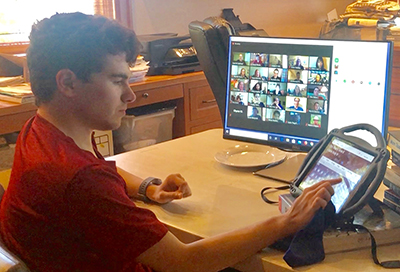20+ Accommodations That You Might Not Know About

When making a transition from high school to postsecondary education, there are a lot of things to accomplish before the start of the year. To help with the overwhelming change you are about to embark on, this is a guide of possible accommodations targeted at those who have learning disabilities. When advocating for accommodations with your campus disability services case manager, they might ask you to explain why these accommodations might be beneficial for your academic success. Be prepared to think about why each accommodation could help you reach your full potential.
Below I have provided examples of accommodations for people who are neurodiverse, many benefit other people as well.
In-Class Accommodations
To understand which accommodations might be useful for you, make a list of challenges you might encounter in a class environment.
- Captions and transcriptions
- Priority registration
- Recording lectures
- A computer for in-class assignments and note taking
- Extra time for in-class or quick turnaround assignments
- Access to professors’ notes and PowerPoints 24 hours in advance
- All PDFs and in-class material are accessible via a screen reader or other forms of accessible technology
- Textbooks in audio formats
- Note taker
- Credit reduction
- Loaned accessible technology
Testing Accommodations
Think of past testing experiences and consider which style of tests you received higher grades on. Was it the environment, the content, the style, or the professor’s grading style?
- Extended testing time
- Testing in a quiet or isolated environment
- The ability to type your test answers onto a computer and use grammar checking software
- Foreign language or culture course substitution
- A reader or transcriber
- Not being marked down for grammar errors
- Use of a fidget tool
Housing Accommodations
Dorms are your home away from home and should feel like a safe place. Think about what aspects are important and needed for you to feel relaxed and succeed.
- Single room request
- A quiet-specific dorm or hall
- Priority choice in roommates
- Transparency with dietary restrictions (including smell or texture)